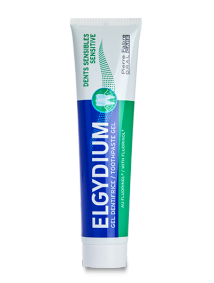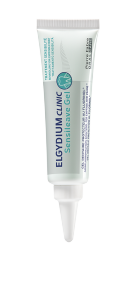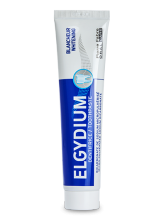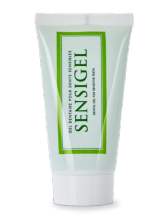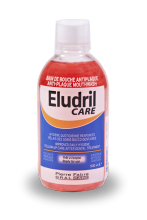Relieving the discomfort of sensitive teeth
What is dentine hypersensitivity?
Dentine is made up of microscopic tubules in contact with the nerves of the teeth
Dentine is the part of the tooth directly under the gum (in the root) or under the enamel (in the visible part of the teeth). It is made up of tiny microscopic tubes.
When the dentine is in direct contact with food or inhaled air, these can then come into contact with the nerve of the tooth, through the tubules in the dentine. If they are hot, cold, sweet or acidic, they stimulate the nerves, which send pain signals to the brain.
Symptoms of dentine hypersensitivity
People with sensitive teeth (which is how we commonly refer to ?dentine hypersensitivity?) complain of short and sharp toothache when their teeth come into contact with hot, cold, sweet or acidic food and drink, during brushing or when they breathe in cold air through the mouth.
Dentine hypersensitivity is harmless but causes discomfort. Sufferers tend to reduce the time they spend brushing their teeth, which exacerbates the causes of sensitive teeth.
Why do teeth become sensitive?
Poor oral hygiene
When teeth and gums are neglected, dental plaque develops with bacteria that then multiply in number. This causes the gums to recede (through the accumulation of tartar between the gum and the tooth),and also creates conditions in which the tooth enamel can be attacked by the acids produced by these bacteria. As a result, the dentine becomes directly exposed to food.
Receding gums
When dental plaque develops, tartar builds up between the gum and the tooth. This may cause local infections and inflammation, which can sometimes be made worse by aggressive brushing. It all results in receding gums, exposing the neck of the tooth and the dentine.
Enamel wear
The dentine of the visible part of the tooth becomes exposed when there is no longer a layer of enamel to protect it. This can happen when the enamel is damaged by abrasion, impacts or acidic substances. Food and drink may be responsible (sodas, wine, citrus fruit juices, pickles, etc.) or it may be caused by the bacteria in dental plaque (in which event tooth decay can also appear). It can also be the result of gastroesophageal reflux (?acid reflux?).
People who grind their teeth at night (a condition called ?bruxism?) can also damage their tooth enamel and develop dentine hypersensitivity.
How can dentine hypersensitivity be alleviated?
Gentle care
Good oral hygiene is vital, but it is also important to treat the gums and the enamel gently. It is better to use a soft toothbrush, and only use more abrasive toothpastes (whitening toothpastes, for example) for short periods.
It is also best to brush the teeth keeping the bristles at 45ø to the surface of the tooth, brushing from the gum to the tip of the tooth.
Fluoride to strengthen the enamel
Fluoride salts are taken up by the enamel, making it more resistant to acid attacks. Using a fluoride toothpaste, possibly supplemented with a fluoride mouthwash or gel, therefore helps to protect the dentine by strengthening tooth enamel.
Flawless oral hygiene to beat plaque and tartar
All oral hygiene techniques (regular brushing, dental floss or interdental brushes, cleansing or fluoride mouthwashes, etc.) help keep the gums healthy, and hence limit gum recession. The dentine on the neck of the tooth remains protected under the gum and the enamel does not suffer the effects of acid attacks by bacteria.
What can you do if you have sensitive teeth?
1. Brush with a toothpaste for sensitive teeth every day
There are toothpastes available that have been specially designed for sensitive teeth. They can combine the usual cleaning and cleansing substances with compounds that will seal the tubules in the exposed dentine. They also contain fluoride salts (for example, the Fluorinol© in ELGYDIUM Sensitive toothpaste), which helps with enamel remineralisation and protects from acid attacks.
2. Choose an ultra-soft toothbrush
Certain toothbrushes are particularly well suited to sensitive teeth. Their extra-soft and silky bristles have tapered tips which clean without damaging the enamel or the gums. The ELGYDIUM Sensitive toothbrush has ultra-soft bristles made from Tynex© (a strong hygienic nylon) with rounded and tapered tips.
3. Mouthwashes or gels to strengthen the enamel with fluoride
The fluoridating action of toothpaste can be boosted with mouthwashes or a gel, such as SENSIGEL, which envelops the necks of the teeth where they are exposed, and significantly reduces hypersensitivity. This gel also contains potassium nitrate.
4. Dental floss for thorough cleaning
To complement the action of the toothpaste and brushing, dental floss is recommended to clean between the teeth. Fluoride dental floss, such as INAVA Dentofil Fluor, is ideal for those who suffer from dentine hypersensitivity.
5. Consult your dentist for targeted treatment
For those who suffer from sensitive teeth, dentists can suggest a varnish which is applied to protect the dentine. The effects last for about six months.
One option for protecting the dentine is to apply a composite where the enamel has disappeared or reconstruct the gum to cover it, either by a graft or by adding a substitute to fill out the existing gum.
Sensitive teeth
When you have sensitive teeth, it is essential to adopt a gentle oral hygiene routine that protects the enamel from mechanical wear, as well as from the acids produced by dental plaque.
See the program